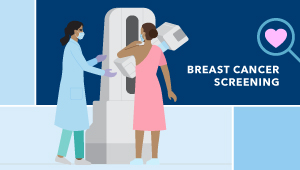Pamela A. Shaw, PhD, MS
Biography
Pamela Shaw, PhD, MS, is a biostatistician with expertise in clinical trials, design and analysis of complex epidemiologic studies, measurement error, and survival analysis. Dr. Shaw’s current statistical research includes a focus on methodology to correct for covariate and outcome measurement error, with application to studies reliant on electronic health records and large observational cohort studies. She is currently applying these methods to study the relationship between maternal weight trajectories during pregnancy and early childhood outcomes, as well as to identify risk factors for poor outcomes in several cohorts of patients with HIV/AIDS.
Dr. Shaw is also involved in studies of aging, behavioral intervention studies, and the use of biomarkers to calibrate self-reported nutritional intake and physical activity. She is co-investigator in a clinical trial that will assess whether an anti-inflammatory diet can improve cognition in a middle-aged (40- to 65-year-old) multi-ethnic urban population relative to a usual diet. She is an investigator for the Adult Changes in Thought (ACT) study, a joint project between Kaiser Permanente Washington Health Research Institute and the University of Washington that focuses on risk factors for dementia, including Alzheimer's disease, and declines in memory and thinking. For this study, she is collaborating with other ACT investigators to understand the best way to quantify patterns of physical activity in the 24-hour day and its association with health outcomes.
Before joining KPWHRI as a senior investigator, Dr. Shaw was an associate professor of biostatistics in the University of Pennsylvania Perelman School of Medicine. At UPenn she taught in the biostatistics graduate program and was the lead statistician for several early phase clinical trials, including studies of CART19, a novel CAR T cell immune therapy for the treatment of acute lymphocytic leukemia and other blood cancers, as well as clinical trials that evaluated the efficacy of behavioral economic interventions to increase healthy behaviors. She co-authored the textbook Essentials of Probability Theory for Statisticians (CRC Press 2016).
Prior to UPenn, she was a mathematical statistician in the Biostatistics Research Branch at the National Institute of Allergy and Infectious Diseases, where she was lead statistician for several clinical and basic science studies of human infectious and immunologic disease.
Dr. Shaw is an adjunct associate professor in the Department of Biostatistics, Epidemiology and Informatics at the University of Pennsylvania and an affiliate professor in the Department of Biology and Wildlife at the University of Alaska Fairbanks. She is associate editor for Statistics in Medicine. She serves as a member for several clinical trial data safety monitoring boards and as a member of the Bone, Reproductive and Urologic Drugs Advisory Committee for the U.S. Food and Drug Administration. She is a member of the International Biometric Society and fellow of the American Statistical Association.
She completed a Bachelor of Arts in mathematics and French at Grinnell College, and a Master of Science in mathematics and a doctorate in biostatistics at the University of Washington.
Areas of research focus
Recent Publications
Mehta SJ, Shaw PA, Reitz C, Brophy C, Okorie E, Williams K, Segura A, Tao J, Snider CK, Wollack C, Friday S, Rendle KA, Klaiman T, Glanz K, Rhodes C, Asch DA Sequential choice vs colonoscopy outreach for colorectal cancer screening: Design and rationale of a pragmatic randomized clinical trial 2025 Dec 16;161:108188. doi: 10.1016/j.cct.2025.108188. Epub 2025-12-16. PubMed
Hyun N, Boe L, Shaw PA An Augmented Likelihood Approach Incorporating Error-Prone Auxiliary Data Into a Survival Analysis 2025 Dec;44(28-30):e70321. doi: 10.1002/sim.70321. PubMed
Amorim G, Slone J, Semeere A, Diero L, Otero L, Crabtree-Ramirez B, Tao R, Duda SN, Musick B, Yiannoutsos C, Lumley T, Shaw PA, Shepherd BE Data validation in multinational observational studies with error-prone data: applying an optimal validation sampling strategy in a study of Kaposi sarcoma and HIV 2025 Nov 25 doi: 10.1093/aje/kwaf264. Epub 2025-11-25. PubMed
Johnson JJ, Ghosh S, Shaw PA, Neuhouser ML, Lampe JW, Tinker LF, Prentice RL, Tasevska N, Freedman LS, Boyer BB, Hopkins SE, Nash SH, Votruba SB, Krakoff J, O'Brien DM The carbon isotope ratio of alanine is a biomarker of added sugar and sugar-sweetened beverage intakes: a pooled analysis of 4 studies 2025 Oct 3 doi: 10.1016/j.ajcnut.2025.09.049. Epub 2025-10-03. PubMed
Mehta SJ, Nadella P, Shaw PA, Reitz C, Brophy C, Okorie E, Williams K, Snider CK, Peifer MK, Rhodes C, Asch DA Behavioral Interventions Improve Mailed Colorectal Cancer Screening Among Overdue Patients in a Randomized Trial 2025 Sep 20 doi: 10.1016/j.cgh.2025.09.015. Epub 2025-09-20. PubMed
Healthy findings blog

HIV/AIDS research advances through Pamela Shaw's work
Shaw's project to reduce the impact of errors in data was just honored with an NIH MERIT award.
Research

Autopsy study links BP drugs to possible brain benefits
Research supports theory that some blood pressure medications may provide extra protection against dementia.
New funding

Grant of over $55M to boost Alzheimer’s, dementia study
Kaiser Permanente Washington will co-lead an expanded ACT Program to better understand the aging brain.
Research

Roundup of 3 recent studies on breast cancer screening
New research spotlights overdiagnosis, MRI before surgery, and a new way of predicting breast cancer risk



